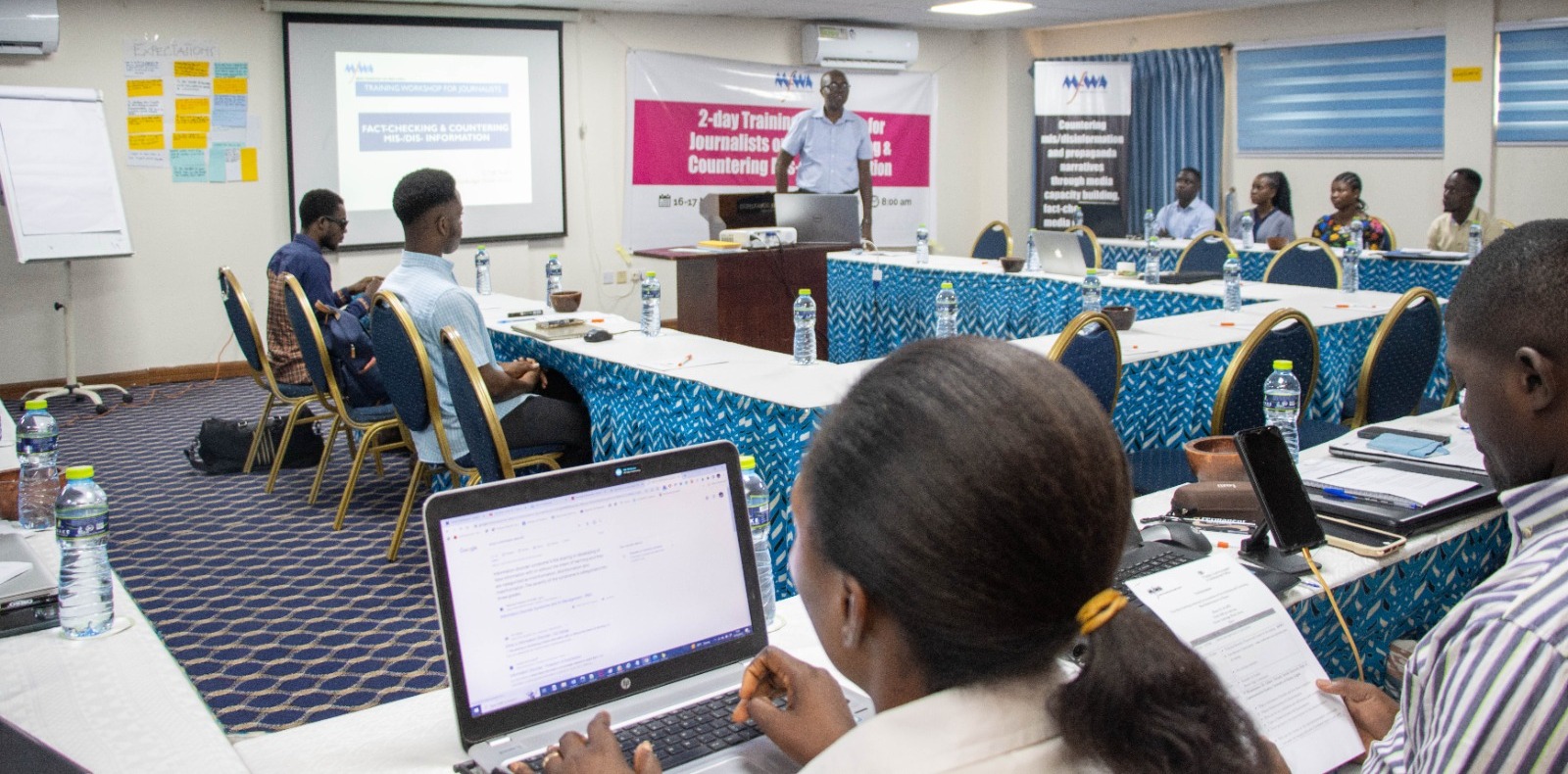A Senior lecturer at the Department of Communication Studies at the University of Ghana (UG), Dr. Gilbert Tietaah is urging media practitioners to be wary of sharing mis-disinformation which has the tendency of fomenting unnecessary tension in the country during political seasons.
Mis-disinformation is a combination of two words, misinformation, and disinformation which means information that is false and misleading and may either be intended to harm or not to harm.
Dr. Tietaah added that such an act of sharing false information leads to deception of the public which is likely to affect voting preferences and thereby, impact negatively the country’s development.
Speaking to Citi News on the sidelines of a two-day training workshop for journalists on fact-checking and countering mis-disinformation organised by the Media Foundation for West Africa (MFWA), Dr. Tietaah emphasized the need for media practitioners to be more scrupulous when spreading information.

“Passing on information without the intent or without the knowledge that is wrong calls on us to be more diligent and scrupulous in the information we share. We make mistakes but when we make mistakes, there has to be a writing, a disclosure or correction process”, he noted.
The Communication lecturer also stressed that mis-disinformation can be reduced when media practitioners expose themselves to training workshops to renew what they already know.
Meanwhile, a fact-checker and Programmes Officer with the Media Foundation for West Africa (MFWA), Krobea Asante urged media practitioners to avoid biases when cross-checking information that affects its outcome.
“Sometimes you are likely to analyse information along your personal beliefs or your own beliefs, so you believe in something to the point where information comes to you. But you are biased towards that belief, and you use that belief system to approach an understanding or analysis of certain information when you are trying to fact-check it. Therefore, you may not get the best out of what you want to do”, the fact-checker explained.
The training workshop brought together twenty-five (25) journalists drawn from Accra and other regions across the country.
Source: citifmonline

Comments